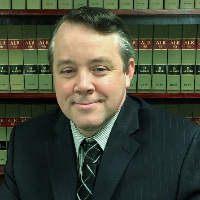 Huntsville RICO Act Lawyers, Alabama
Huntsville RICO Act Lawyers, Alabama
Sponsored Law Firm
-
 x
x

Click For More Info:
-
The Law Offices of Richard L. Cooper, P.A.
848 Brickell Avenue Suite 800 Miami, FL 33131» view mapDWI/DUI, Drug Trafficking, Felony Nationally Ranked Top 40 Under 40
With Richard L. Cooper you can expect a trusted confidant who will work diligently to fully understand your case and determine a road map to help you regain control of your life.
800-756-2781
Not enough matches for Huntsville RICO Act lawyer.
Below are all Huntsville Criminal lawyers.
Sponsored Lawyers
1-10 of 21 matches
Estate Planning, Divorce, Personal Injury, Criminal, Mass Torts
Shannon Moore was born in Huntsville, Alabama. He is a graduate of Grissom High School and he received his undergraduate degree from the University of Alabama in Huntsville. He went on to get his juris doctorate from the University of Alabama School of Law. Upon graduation from law school in 1998 he went on to found a law firm with a fellow graduate from law school. He has been in the private practice of law since that time. His practice focuses on criminal law, family law, and personal injury. Over the years, Shannon has represented numerous individuals and has been involved with both bench trials as well as jury trials. In addition, he was the prosecutor for the City of Madison for several years. Shannon is a past president of the Madison County Young Lawyers and he is a member of the Madison County Bar Association, the Alabama Bar Association, and the Alabama Criminal Defense Lawyer's Association. In addition to his legal activities, Shannon is an active member of the local community. He is a lifelong member of Trinity United Methodist Church and has taught Sunday school there. He was a member of the Criminal Justice Advisory Board at Virginia College in Huntsville, Al. He currently is a board member on the South Huntsville Civic Association and a board member of the South Huntsville Library Steering Committee. Shannon Moore has managed several political campaigns over the years and has run for office himself.
(more)



 Richard L. Cooper Miami, FL
Richard L. Cooper Miami, FL AboutMiami Attorney at Law
AboutMiami Attorney at Law ServicesCriminal Defense
ServicesCriminal Defense

